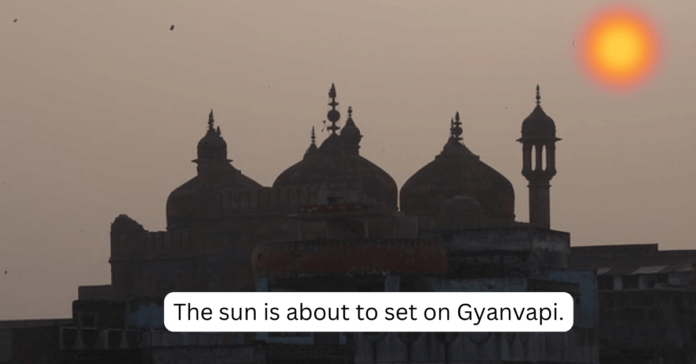The latest 839-page report of the Archaeological Survey of India (ASI) has added fuel to the already raging fire surrounding the Gyanvapi mosque in Varanasi. The survey allegedly found the presence of Hindu temple remnants under the mosque structure. This development has potentially explosive ramifications. The already charged Hindu right may have found another Babri mosque situation to galvanize Hindu support for the upcoming general election this year. This finding is also detrimental as the media along with the right wing social media warriors will start another nonstop communally imbued anti Muslim debate and campaigns to demonize Indian Muslim community. Infact,Gyanvapi Mosque casemay herald the Next Flashpoint of Hindu-Muslim Politics in India
The survey of the Gyanvapi mosque by ASI was ordered by a local Varanasi court to determine if the mosque was built on the remains of a Hindu temple. The survey claims to have found remnants of a 10th-12th century temple under the mosque foundations. This development has put a question mark over the fate of countless other mosques in India who according to Hindu right have been built over demolished Hindu temples. All this is happening despite an Act in place to prevent such conflicts over religious places who have potential to destroy the societal piece.
Right-wing Hindu groups have welcomed the ASI report to further bolster their narrative that Muslim invaders destroyed Hindu temples and constructed mosques over them. With the Gyanvapi mosque located right next to the iconic Kashi Vishwanath temple, Hindu right wing has sensed an opportunity to whip up religious passions. Many already predicting on social media and elsewhere that this dispute may go the way of Ayodhya’s Babri Masjid, where frenzied mobs eventually destroyed the 16th century mosque based on claims that it was built on the Ram Janam Bhoomi.
As the country barrels towards another major Hindu-Muslim flashpoint, the fate of the Gyanvapi mosque hangs in the balance. The timing of the report is very much in favor of the Right wing Bhartiya Janta Party under the PM Modi (BJP) who is going to contest for the thitd term this year.
The mosque custodian Anjuman Intizamia Masajid’s joint secretary reportedly said they need to go through the report to chart out the future course of action. However, the Hindu right seems intent on using the temple remains issue to stoke majoritarian communal sentiment for political ends.
Ironically, these heated disputes over mosques built over demolished temples are unfolding despite the existence of a law expressly prohibiting such changes. The Places of Worship Act, 1991 clearly establishes that the religious character of shrines as it existed on August 15, 1947 must be maintained. In essence, this law has froze the status of places of worship as they were at the time of India’s independence to avoid any such communally charged conflicts. However, the Act have given exceptions including judicial resolutions of disputes relating to conversions that may have occurred after 1947.
There is absolutely no doubt that the Gyanvapi controversy clearly violates the spirit of the Places of Worship Act. The lack of will by the court in enforcing this significant law has allowed majoritarian religious sentiments to resurface.




